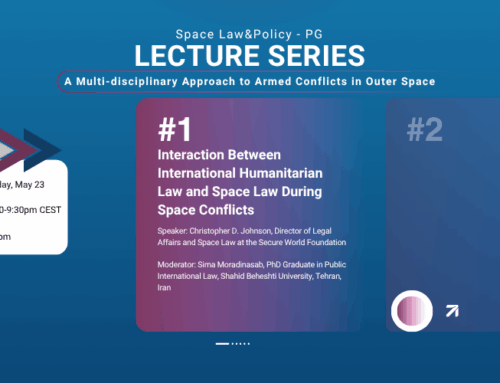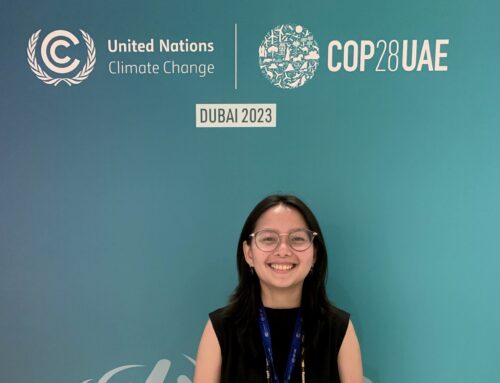The result is a silent exclusion of diverse perspectives, weakening the legitimacy and effectiveness of space governance institutions. Equitable access to opportunity must become a measurable objective in legal implementation, not merely a rhetorical ideal.
Introduction
As outer space transitions from scientific frontier to economic domain, questions about who has the right to access and benefit from its resources are becoming increasingly urgent. The international space law regime, led by the Outer Space Treaty (1967), proclaims that space shall be used for the benefit of all countries, irrespective of their degree of development (art. I OST). Yet, legal instruments have struggled to translate this principle into enforceable mechanisms. For Global South states and marginalised groups, barriers to access persist, not because of incapacity, but because of deeply entrenched legal and structural inequalities. This article examines the current state of equity in international space governance and outlines the need for legal and policy reforms to uphold space as a domain of shared benefit. As commercial and strategic interests expand, the absence of equity in rulemaking risks turning space into an extension of terrestrial disparity. Law must now evolve to confront these global asymmetries before being solidified further into space governance norms.
National Legal Frameworks and the Shift to Unilateralism
Countries such as the United States, Luxembourg, the United Arab Emirates, and Japan have adopted national legislation that permits the commercial exploitation of space resources. These laws, such as the U.S. Commercial Space Launch Competitiveness Act (2015), Luxembourg’s 2017 Space Resources Law, and Japan’s Space Resources Act (2021), enable private actors to claim ownership over extracted materials. While these laws aim to encourage innovation, they exist in legal tension with Article II OST, which prohibits national appropriation of outer space and its celestial bodies. This trend illustrates a shift toward unilateral interpretation of international norms, bypassing multilateral treaty development and reducing opportunities for consensus-based regulation. The implications are far-reaching, setting precedents that favour early movers while complicating collective legal oversight. If unchecked, these practices could contribute to resource monopolisation and norm fragmentation.
The Multilateral Deficit and the Artemis Accords
Efforts to create a global framework have been stymied by divergent state interests. The Moon Agreement (1979), which introduced the principle of common heritage of humankind, has been ratified by only 17 states, none of which are major space powers. More recently, the Artemis Accords, launched by the United States in 2020, seek to establish principles for lunar and planetary resource activities. Although positioned as inclusive, the Accords reflect a governance model favouring U.S.-aligned interpretations of international law. Notably, many Global South states were absent from the drafting process, and some have expressed concern that the Accords reinforce power asymmetries rather than correct them. The lack of a unified and enforceable international regime leaves a regulatory vacuum, vulnerable to fragmentation and inequity. Without genuine multilateralism, the development of binding legal standards may give way to norm-setting by select coalitions, potentially undermining the universality of space law. This threatens the long-standing international legal consensus established by the Outer Space Treaty framework.
Legal Instruments and Epistemic Inequity
Resource access is also shaped by control over space infrastructure and data. Launch vehicles, orbital slots, and satellite constellations are concentrated in a handful of countries and companies. Developing nations face legal and financial restrictions in acquiring satellite data critical for disaster response, agriculture, and environmental monitoring. Moreover, intellectual property rights and national security regulations limit data sharing, creating a form of epistemic injustice where knowledge production is centralised and access is monetised. While international declarations such as the Space Benefits Declaration and the Remote Sensing Principles (A/RES/41/65) encourage transparency and cooperation, binding legal instruments are needed to ensure that space-based knowledge serves global development equitably. The growing commercialisation of data risks reinforcing monopolies that exclude low-resource actors from deriving scientific and socioeconomic benefits. Future frameworks must guarantee both access and interpretability of space data to truly democratise its impact.
The Environmental and Ethical Imperative
Article III OST requires states to conduct activities in conformity with general international law, including environmental standards. Yet, current national frameworks for resource extraction do not sufficiently address the environmental risks posed by large-scale mining on celestial bodies. Without an enforceable multilateral agreement, activities may proceed without adequate consideration of intergenerational ethics or celestial preservation. The principle of precaution, well-established in Earth-based environmental law, which is most clearly grounded in Principle 15 of the Rio Declaration and further recognised in a host of international treaties and protocols such as the Montreal Protocol (1987), Convention on Biological Diversity (1992), Cartagena Protocol (2000), UNFCCC (1992), and Bamako Convention (1991), remains underdeveloped in space governance. A lack of regulatory foresight today may lead to irreversible harm to celestial environments, making the case for legally binding sustainability provisions ever more urgent. Planetary protection must be codified not only as a scientific norm but as a legal obligation.
Access, Mobility, and Structural Biases
Beyond treaties, systemic disparities in space access manifest through educational mobility, visa policy, and institutional gatekeeping. Opportunities for internships, fellowships, and training in space law and technology are often contingent on passport strength, funding availability, and geopolitical affiliations. Youth from the Global South routinely encounter restrictive visa regimes, complex application processes, and elevated expectations for qualification barriers that are often absent for their Western counterparts. This creates a de facto credential hierarchy, where access is governed not by capacity but by structural privilege. These limitations reflect a failure of international frameworks to ensure equal participation in the capacity-building processes promised by Articles I and IX of the OST. The result is a silent exclusion of diverse perspectives, weakening the legitimacy and effectiveness of space governance institutions. Equitable access to opportunity must become a measurable objective in legal implementation, not merely a rhetorical ideal.
The Sociological Reality of Legal Participation
Participation in global space law forums remains uneven. Representation from the Global South is often limited to observer roles, with minimal input into norm creation. Furthermore, intersectional barriers related to race, gender, and socioeconomic status shape access to careers and influence in the space sector. Women, particularly from non-Western backgrounds, continue to face exclusion in both scientific and policy domains. The result is a body of law written by and for a narrow demographic, risking regulatory blind spots that fail to reflect the diversity of global interests and experiences. Equity in lawmaking is not only about inclusion; it is about legitimacy, effectiveness, and the just distribution of normative power. Recognising and correcting these disparities is vital for building durable, globally accepted legal structures.
Conclusion: Reframing Equity as a Legal Responsibility
Equity in space governance cannot be achieved through symbolic gestures or ad hoc initiatives. It must be encoded in binding legal frameworks that recognise and address historical and structural disparities. This includes equitable participation in norm development, redistribution of capacity-building opportunities, environmental safeguards, and fair access to data and resources. The promise that space shall benefit all humankind is not self-fulfilling; it is a legal and political commitment that requires enforcement. Reframing equity not as an ideal but as a legal responsibility is essential to ensure that the final frontier does not replicate the exclusions of the past but sets a precedent for a more just and inclusive future. As we shape the next century of space activity, we must ask not only what we can do in space but who we are doing it for.
References
- Wilson Centre. (2023). The Global Legal Landscape of Space: Who Writes the Rules for the Final Frontier. https://www.wilsoncenter.org/article/global-legal-landscape-space-who-writes-rules-final-frontier
- UNIDIR. (2024). The Importance of Space Security for the Global South. https://unidir.org/the-importance-of-space-security-for-the-global-south
- NASA. (2020). The Artemis Accords. https://www.nasa.gov/specials/artemis-accords/index.html
- CILJ. (2024). Lunar Mining and the Erosion of the Common Heritage Principle. https://cilj.co.uk/2024/10/20/lunar-mining-and-the-erosion-of-the-common-heritage-principle-whats-the-future- of-the-moon-agreement
- Opinio Juris. (2020). Space Law at the Crossroads: Artemis Accords and the Executive Order. https://opiniojuris.org/2020/07/22/space-law-at-the-crossroads-contextualizing-the-artemis-accords-and-the-s pace-resources-executive-order
- CIGI. (2023). Only Effective Space Governance Can Prevent Future Conflict. https://www.cigionline.org/articles/only-effective-space-governance-can-prevent-future-conflict
- Visa Middle East. Path to Access: A Mobility Initiative. https://ae.visamiddleeast.com/en_AE/pay-with-visa/promotions/path-to-access.html
- EVONA. (2023). Unconscious Bias in the Space Industry. https://www.evona.com/blog/unconscious-bias-space-industry/
- ICAAD. (2024). Space Equity Must Be Inherent in Governance. https://icaad.ngo/2024/12/18/space-equity-must-be-inherent-in-space-governance
- Utrecht Law Review. (2023). Legal Barriers to Access and Knowledge Sharing. https://utrechtlawreview.org/articles/10.36633/ulr.974
- OECD. (2024). Evolving Public-Private Relations in the Space Sector. https://www.oecd.org/en/publications/evolving-public-private-relations-in-the-space-sector_b4eea6d7-en.html
- RSIS. (2025). Security and Dual Use in Space. https://rsis.edu.sg/wp-content/uploads/2025/03/WP344.pdf
- Paris Peace Forum. (2024). Promoting Fair Access to Space by the Global South. https://parispeaceforum.org/sessions/promoting-fair-access-to-outer-space-by-the-global-south-to-accelerate- sdgs-and-growth-en-45785
- Rio Declaration on Environment and Development, Principle 15 (1992), and as referenced in Montreal Protocol (1987), Convention on Biological Diversity (1992), Cartagena Protocol (2000), UN Framework Convention on Climate Change (1992), Bamako Convention (1991). Summarised in: Oxford Public International Law: “Precautionary Principle” – Max Planck Encyclopedia of Public International Law https://opil.ouplaw.com/display/10.1093/law:epil/9780199231690/law-9780199231690-e1603
- United Nations General Assembly (1986). Principles Relating to Remote Sensing of the Earth from Outer Space, Resolution 41/65, adopted on 3 December 1986. https://www.unoosa.org/oosa/en/ourwork/spacelaw/principles/remote-sensing-principles.html
- United Nations General Assembly (1996). Declaration on International Cooperation in the Exploration and Use of Outer Space for the Benefit and in the Interest of All States, Taking into Particular Account the Needs of Developing Countries (Space Benefits Declaration), Resolution 51/122, adopted on 13 December 1996. https://www.unoosa.org/oosa/en/ourwork/spacelaw/principles/space-benefits-declaration.html
Author

Currently, Ridima is Head of Research & Development at Space Point Publications and an active member of SGAC’s Space Law & Policy and Space Safety & Sustainability Project Groups. She has co-authored multiple IAF papers on space resource regulation and space sustainability solutions and frameworks, and is writing a paper for an upcoming book with Durham Law School on human life after extraterrestrial contact.
She has presented research at major conferences, including the Winter Satellite Workshop 2025, where she discussed bridging technical innovation with legal standards for sustainable space-based cosmology, and GLEX 2025, where she presented on astrophysical techniques for space debris mitigation using orbital resonance and circular economic frameworks for space sustainability. As an astronomical observatory intern at the Sharjah Academy for Astronomy, Space Sciences and Technology, she continues deepening her space research and technical expertise.
Passionate about shaping the future of astronomy, space exploration & governance, Ridima is committed to fostering sustainable and equitable policies for the peaceful and innovative use of outer space.







